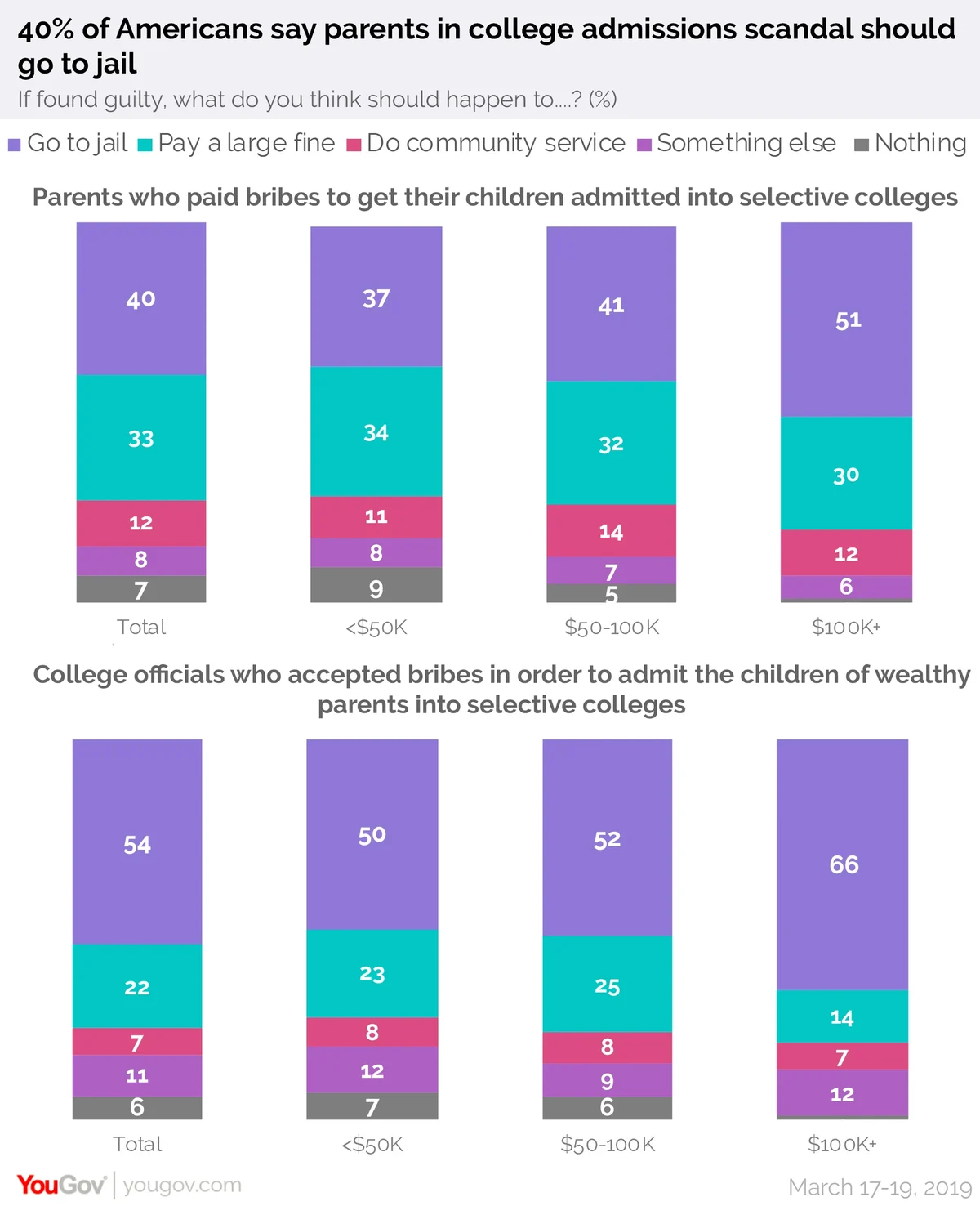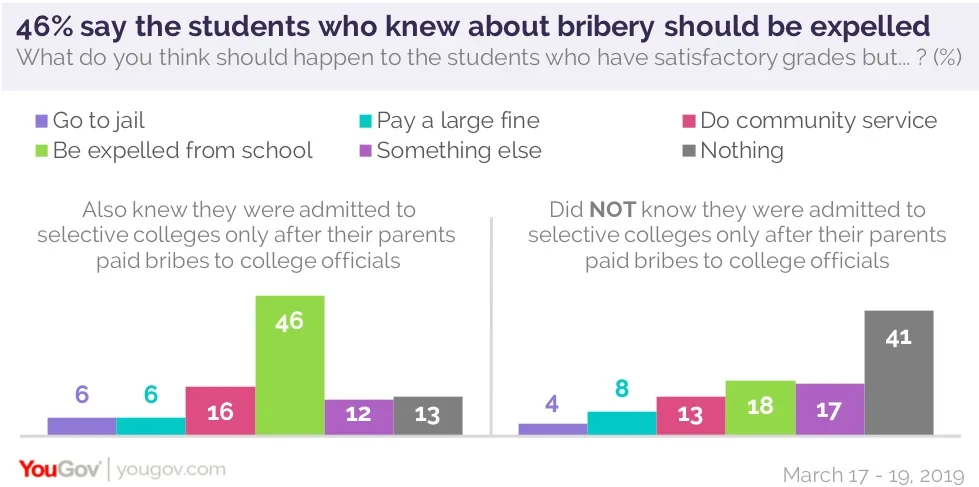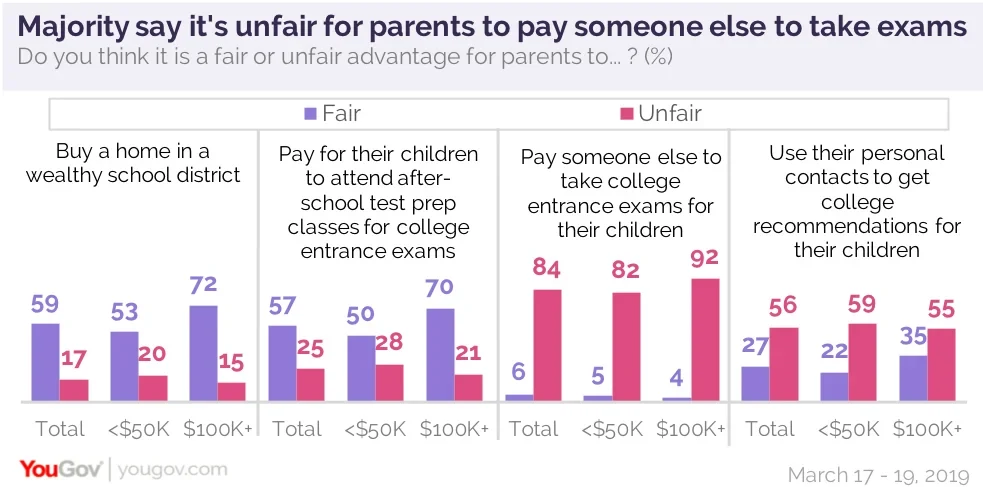One in five claim they know parents who have filled out their children’s college applications
Americans are generally appalled by the recent college admissions scandals involving fraud and bribery by wealthy parents looking for advantages for their children (though a recent YouGov poll suggests some might be willing to use the same tools to help their own children). In the latest Economist/YouGov Poll most want serious punishments for those involved – including the students, if they know about the fraud.

More Americans would send the college officials involved to prison than would jail the parents, though three in four want both groups to pay either a large fine or go to jail. In both cases, people with yearly incomes of more than $100,000 are most likely to want parents (51%) and officials (66%) to go to prison for what they did.
As for the students, half the public think they were aware their parents had paid money to make sure they received higher test scores, or were declared as collegiate-level athletes when they were not. Just 16% think they weren’t aware of their parents’ efforts, and the rest aren’t sure. Again, the best off are the most sure the students knew: by 59% to 8%, those with incomes over $100,000 believe students knew what was going on.
Americans believe those students who did know should be punished, though they favor expulsion from school (46%) -- even if their grades are satisfactory -- over jail (6%) or financial punishment (6%). More would cut students who were unaware some slack, and if their college grades are satisfactory, many (41%) would not subject them to any punishment.

Over half (58%) of those who believe the students knew what was happening would expel that group. As schools begin to implement punishments, some are considering doing just that.
One in five claim they know parents who have filled out their children’s college applications. While that may not be an acceptable way to help a child get admitted to good colleges, there are ways to help that most people think are okay, and they all cost money. Buying a home in a wealthy school district (59%), or paying for college test preparation courses (57%) are both seen as fair ways of making sure your child gets ahead. Paying someone to take an entrance exam is not (84% say it’s unfair), and neither is using a parent’s personal contacts to get letters of recommendation for your child (56% say it’s unfair).

Half of those who are less likely to be able to use the first two methods still say they are fair ways of helping children. Even more of those with incomes above $100,000 agree. But relatively few in both income groups believe it’s fair for parents to use personal contacts.
The best-off financially are most likely to know both the ups and downs of college admissions. More than three in four in this income group know someone who was admitted to the college of their first choice, but 57% also know someone who was rejected. For the public as a whole, the percentages are 53% and 34% respectively.
There is a hierarchy when it comes to what kinds of students should get advantages in college admissions. Just over a third (36%) would advantage those who can pay full tuition and don’t need financial assistance. Even fewer (26%) would privilege legacy applicants (those whose parents or grandparents attended the college). Still fewer (13%) would give admission to those whose parents would make large contributions.
While affirmative action is not popular in principle, there is support for giving an advantage to those who are financially disadvantaged (49%), as well as some for those who would become the first in their family to attend college (40%). There is also a lot of support for talent of any kind – athletic (43%), artistic (50%) or musical (51%).
See the full toplines and tables results here.
Image: Getty







